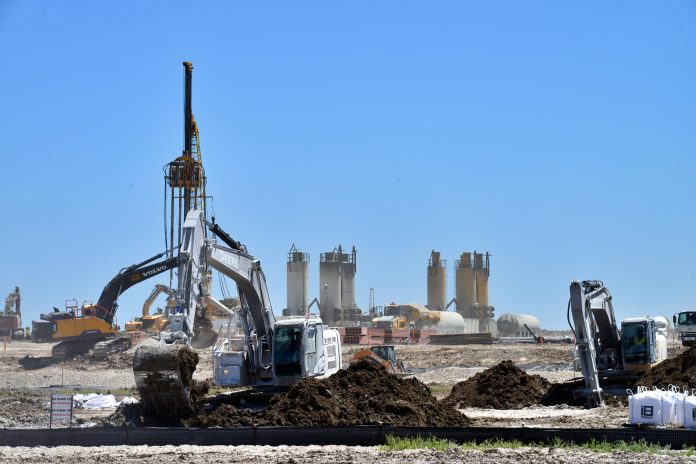
|
Only have a minute? Listen instead
Getting your Trinity Audio player ready...
|
On Aug. 20, attorneys for Rio Grande LNG sent a letter to the Federal Energy Regulatory Commission withdrawing the company’s application for authorization to include a carbon capture and sequestration (CCS) project as part of Rio Grande LNG, a liquefied natural gas terminal under construction at the Port of Brownsville.
Rio Grande filed the application in November 2021. In April 2023, FERC issued a notice that it was “suspending its environmental review of the (CCS) Project due to (the company) not submitting complete and timely responses to engineering and environmental data requests.”
In its Aug. 20 letter to FERC, Rio Grande said it was unable to respond the agency’s requests for information because the CCS project was not “sufficiently developed” to allow FERC to continue its review. CCS is an experimental technology involving the capture and storage of carbon dioxide from industrial facilities.
The South Texas Environmental Justice Network, an anti-LNG group, issued a press release Aug. 26 linking Rio Grande’s application withdrawal to a “recent legal victory related to the project,” referring to an Aug. 6 ruling by D.C. Circuit Court against FERC approval of LNG terminal and related pipeline projects at the port.
The decision was in response to a lawsuit filed by the Sierra Club and other LNG foes, who argued that FERC granted authorization for the projects without adequately taking into account opponents’ arguments about the potential for harm to surrounding communities and the environment. FERC now has to reconsider the projects’ potential impact, which will require a new draft supplemental Environmental Impact Statement and public comment period before authorization is granted.
Construction of Rio Grande LNG at the port continues, however, since the D.C. court has not yet issued a mandate enforcing its ruling in the case. Nathan Matthews, the Sierra Club’s lead attorney on the case, wrote in a statement last month that “the Court has said it will not issue the mandate for 52 days, which is seven days after the 45-day deadline for FERC or the developers to seek rehearing.”
The South Texas Environmental Justice Network, or STEJN, noted that the court’s decision requires FERC to do a comprehensive analysis of the CCS project.
“Rio Grande LNG relinquished CCS and may be attempting to expedite a re-evaluation of its application to obtain a new permit approval from FERC,” the group said. “The CCS facility for Rio Grande LNG has been the subject of protests by community organizations, the City of Port Isabel, national environmental organizations and residents.”
One criticism was that a CCS facility would required approximately 2.5 million gallons of water per month in drought-stricken Cameron County.
STEJN member Bekah Hinojosa said the organization recognized years ago that “Rio Grande LNG’s CCS proposal was a scam that was invented to greenwash the project and attract investors. CCS for LNG is a greenwashing PR campaign to make the Rio Grande LNG fossil fuel corporation appear to be environmentally friendly.”
Asked for a response, a spokesperson for NextDecade, Rio Grande LNG’s parent company, essentially restated Rio Grande LNG’s Aug. 20 letter to FERC, but added: “We remain committed to advancing and lowering the cost of utilizing carbon capture and storage and helping companies reduce their facility emissions and achieving their clean energy goals.”



